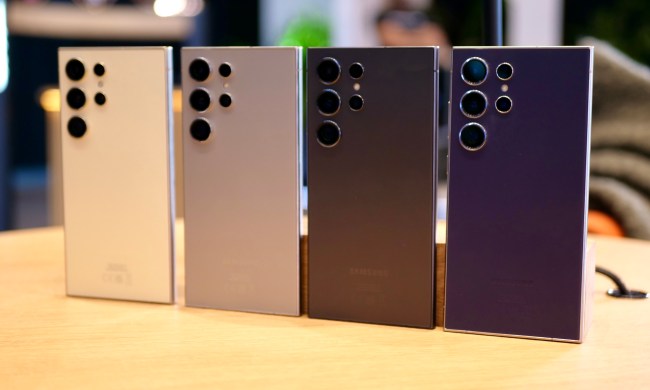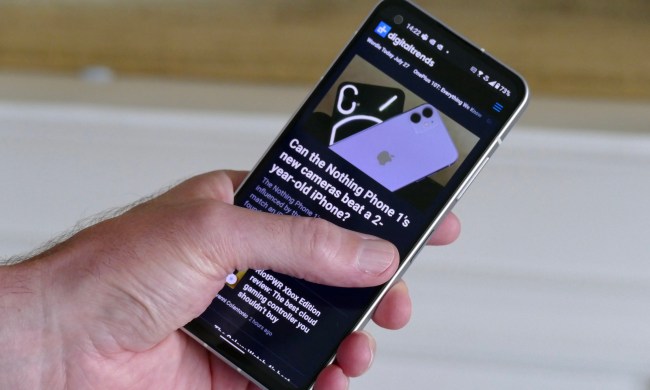Samsung’s first Unpacked event has come and gone, and we are left with a lot to process in its wake. Samsung came to impress with its Galaxy S22 Ultra and kept the rest of the S22 lineup premium. Put simply, it was an exciting show. But it wasn’t perfect. There are some things that Samsung did really well, and some improvements that could be made. So without further ado, let’s dive in!
Building an ecosystem

Arguably, Samsung’s biggest competitor in the smartphone and tablet space is Apple. A key advantage with Apple is its ecosystem of devices, and how well they all work together. Samsung has made some strides in this area, especially with how easily devices pair with each other. Setting up a Galaxy Watch is especially easy if one is pairing with a Samsung phone. The same goes for the Galaxy Buds.
With the Galaxy S22 and the Galaxy Tab S8, Samsung is extending that relationship by making devices actually work together. The main example I took from Unpacked was using the Samsung Galaxy S22 Ultra as a color picker and tool adjustment while drawing on the Tab S8. Granted, that’s a niche case, but it means that the fine folks at Samsung are in that mindset. They’re asking themselves, “How can we make all this stuff work together?”
That’s the kind of ecosystem that gets people to go all in. It’s not hard to imagine what might be possible in a few years with Samsung phones, tablets, PCs, TVs, and more. Of course, the reason it’s not hard is that Apple is already doing it, but Samsung is active in a mind-boggling number of product categories that Apple can’t even sniff at. The possibilities here are endless.
Call it the Note, you cowards!
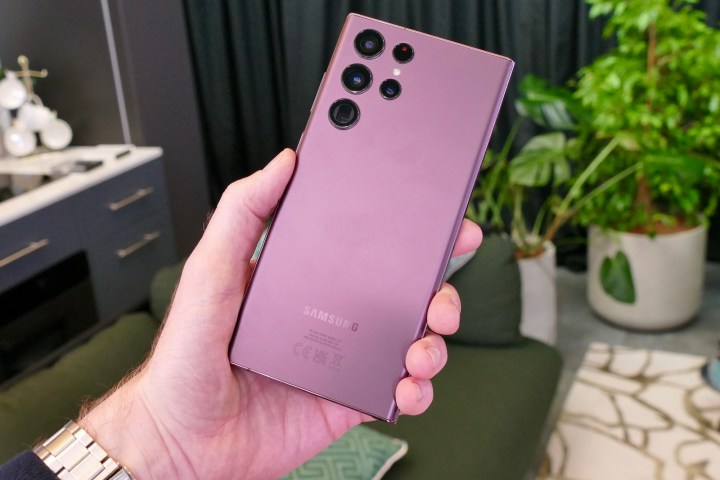
Going all the way back to 2020, it wasn’t hard to see the writing on the wall. The Note’s days were numbered. We got one last hurrah in the Galaxy Note 20, but that was it. Samsung introduced the S Pen to the Galaxy S21 Ultra last year, but it was a half-baked solution at best. The silicone case and S Pen made the S21 Ultra even more unwieldy than it already was. This year, Samsung solved that problem by opening up its old playbook and garaging the S Pen into the body of the phone. For all intents and purposes, the S22 Ultra is a new Galaxy Note.
But Samsung stopped short of acknowledging that fact by just calling it the Samsung Galaxy S22 Note. Instead, Samsung relies on a “Note-like experience” to appease the Note fanbois. Samsung also focused too much on the word Ultra, adding the moniker to its flagship tablet, as well as its flagship phone. Fine. But if it walks like a Note, and quacks like a Note, then it’s probably a Note.
At least the word “Note” has brand equity among the fanbase. Consider the non-superfans who like their Galaxy Note and might be looking to upgrade this year. They might not be willing to do the mental gymnastics required to figure out that for all intents and purposes, the S22 Ultra is the spiritual successor to the Note. But if they suddenly start hearing about a new Galaxy S22 Note, now you have their attention.
Ultra is a marketing word along the same lines as “Pro” and “Max.” I think it’s no secret how tired the smartphone community is of those names. The Note could have been the pinnacle. Now it’s just an “experience.”
Keeping the same price point

Last year, Samsung surprised a lot of people by reducing the base price of the phone trio by $200 apiece. The S20 series debuted at $999, $1,199, and $1,399 respectively. Their successors hit the shelves at much more palatable price points of $799, $999, and $1,199. Lo and behold, the S22 comes in at the same price points, but with premium materials to bear. Put frankly, that’s awesome. Our own Andy Boxall worried that Samsung might let their accountants dictate the specifications. That is clearly not the case here.
The Galaxy S22 line is a return to premium materials inside and out, and it did so without increasing the price. That’s important, especially in a world where Apple’s flagships start this low as well. That’s not to mention the plethora of increasingly good options in the midrange space. Samsung needs to stay at this price point to remain competitive, but it can’t cut corners like it did last year. Samsung managed that, somehow, and it’s great to see.
Samsung Galaxy S21 FE timing

There is one problem with pricing though, and it’s because we saw the Samsung Galaxy S21 FE released a couple of weeks ago for just $100 less. Samsung said the Galaxy FE will serve customers who are shopping in that price range, but that doesn’t make a lot of sense. The Samsung Galaxy S22 is a much better phone on paper and it costs $100 more. Spread out over 24 months, as so many carriers are doing these days, you’re looking at a price increase of a cup of coffee per month. That’s a small sacrifice to make for a much better phone.
The timing is so confusing because Unpacked was just weeks away. Why not just release the Galaxy S21 FE at Unpacked? Or, flip the script and call it the S22 FE? This feels like a project that just kept getting delayed and delayed until suddenly someone looked at the calendar and said, “Holy cow! Unpacked is almost here! Get that phone out the door!” Launching the S21 FE and then launching the S22 so close together will cannibalize sales of one for the other. It just doesn’t make a lot of sense without a steeper price cut for the S21 FE.
Shipping tablets with S-Pen in the box

Samsung is pushing the productivity narrative pretty hard with the Galaxy Tab S8. It has to; there’s no other reason to buy a $700 Android tablet. Sorry.
So Samsung is continuing its tradition of shipping the S Pen in the box. This isn’t so much as a thing it’s doing right, but a thing that it’s continuing to do right. The S Pen attaches to the back of the tablet magnetically, and we’ll wait for our full review to find out if that attachment is strong enough (I love it on the iPad Mini), but an S Pen can be a valuable commodity for a tablet geared toward creating. Sure, I’d rather see a garaged S Pen, but arguments could be made either way for making the S Pen larger and comfortable to hold versus thin enough to slot into the body of the tablet.
We’ll give Samsung the benefit of the doubt on that one and it’s worth noting the S22 Ultra’s S Pen does work on the tablets.
Only shipping keyboards if you preorder
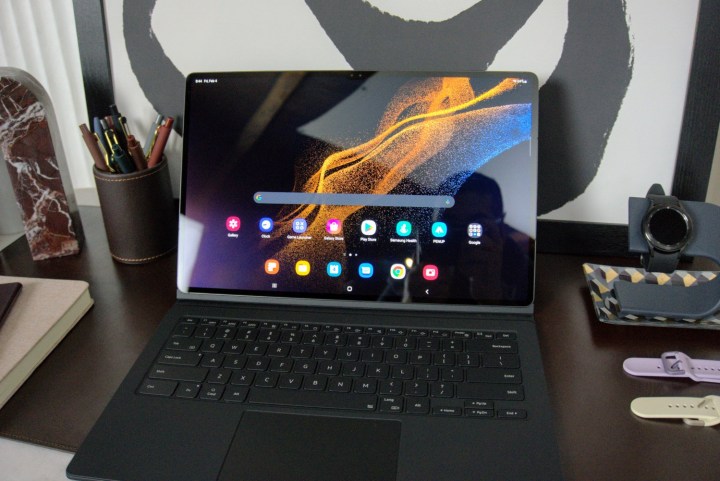
If productivity tablets are Samsung’s focus, failing to ship the tablet with a keyboard is confusing. Sure, if you preorder you can get a keyboard. That’s more than most tablet-makers offer, but it’s not ideal. People might want to wait for reviews to see if a Tab S8 can do everything they need. If you can afford to ship a keyboard with a preorder, you can afford to ship it with an order.
Perhaps leaving the keyboard out on the lower models of Tab S8 can be forgiven, but this is especially egregious when considering the Tab S8 Ultra which lands north of $1,000. If there’s no reason to buy a $700 Android tablet, there’s really no reason to buy one for $1,099. At that price point, you start talking about the best convertible laptops, let alone tablets, let alone Android tablets. If the Ultra is to command such an exorbitant price, it needs to come with everything that can take advantage of that hardware, and that includes the keyboard.
Solid multitasking

This is a two-pronged point because not only does the tablet itself have a slick, three-pane multitasking interface, but Samsung DeX automatically kicks in if you attach that keyboard you got because you pre-ordered. DeX gives you a very PC-like experience with a windows interface similar to what you’d find on a Windows or MacOS PC. The Tab S8 Ultra’s enormous screen is well suited for either interface. It has the potential to be a multitasking dream.
Various tablets have tried different interfaces for multitasking over the years. One of my favorites comes from tablets like the Lenovo Tab P11 Pro called “productivity mode” which gives you a dock of icons across the bottom of the screen showing you what’s running and allows you to switch quickly. DeX is my second favorite because most Android tablet are usually too small to get good side split-screen windows. The Tab S8 Ultra on the other hand is larger than a lot of laptops I’ve used, so it’s possible, or even likely that DeX might pull ahead in this case, and I’m excited to try it out.
What the notch
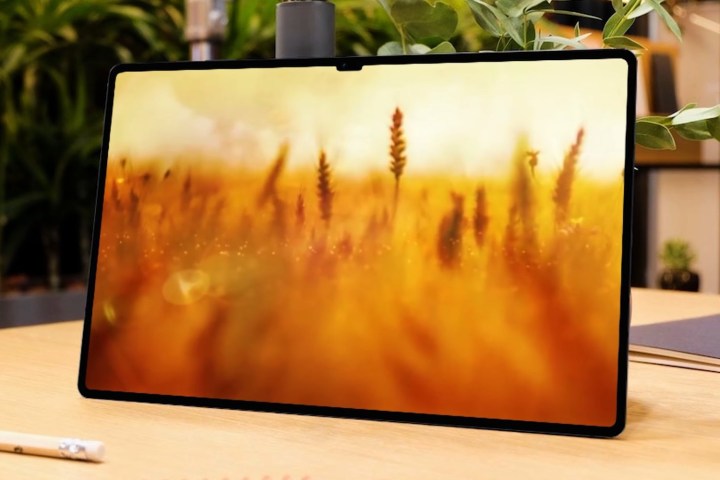
Oh, Samsung. You just couldn’t resist copying this, could you? The notch has been a trademark on Apple devices for years now and up until now, you’ve resisted the urge to copy it. Good for you. But now with the introduction of two front-facing cameras on the Tab S8 Ultra and tiny bezels, it became necessary to cut into the screen to give those cameras some breathing room.
Notches are generally not well accepted. On premium smartphones, they’ve all but gone away (with one notable exception) with most manufacturers and consumers preferring the look of punch hole cameras. Even the iPhone 14 is rumored to be ditching the notch, instead going with a pill-shaped hole. Now is not the time to introduce a notch onto your devices.
Wrapping it up
The Samsung Unpacked event brought some really nice hits but also had a few misses. I think the hits were a lot bigger and better, so I can’t complain too much. Mostly, I’m looking forward to going hands-on with the devices Samsung introduced, and in the meantime, I’m living vicariously through my colleagues who have already looked at the Galaxy S22 Ultra and the Tab S8 Ultra.

